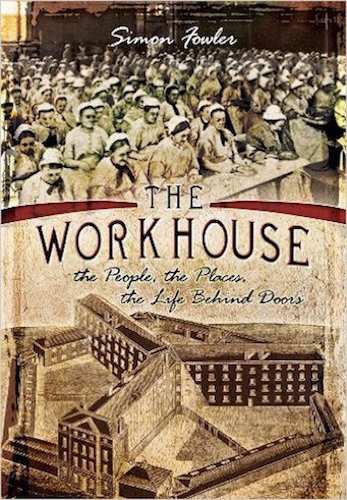HARD TIMES
In the nineteenth century the workhouse cast an ominous shadow over the lives of England’s poor. Orphaned or foundling children, elderly people no longer able to support themselves, and the families of men either jailed or transported to the colonies were among those who looked to it for help when things got tough. Workhouses also featured in some of the literature of the period. Charles Dickens famously used it as the setting for the early scenes of Oliver Twist, and it was his description of the cruelty and deprivation that went on behind the stone walls that contributed to reinforcing the grim reputation of these establishments.
Writer and historian Simon Fowler begins his analysis by exploring the lives of the people who depended on workhouses and those employed to care for them. He starts with the Poor Law system, which sought to deter people from entering workhouses by making the conditions inside as uncomfortable as possible. Although workhouses had a reputation for cruelty and strict discipline, some historians believe they did have a few “positives”. Their notoriously tough conditions incentivised men to work hard and save money to spare their families the indignity of becoming workhouse residents, while children received the basic education they would have been denied at home because they were expected to earn a living.
There’s no denying that workhouses were rough places often run along regimental lines, but Fowler believes many people would have probably died had they not existed.
It’s an interesting premise and the author has written a moving narrative about the tens of thousands of men, women, and children who survived the workhouse regime. The book includes the recollections of many inmates ranging from the anonymous “Indoor Pauper” to famous figures like the actor Charlie Chaplin. Fowler is a prolific writer and a leading authority on family history and this book offers an intriguing insight into the relationship between an institution and the people it was designed to serve.
Reviewed by Juliette Foster




